Bringing the Energy in Lynchburg
Displayed on a bookshelf in Jacki Stevens’ Framatome office, a small card makes a big impact. Stevens, who leads teams focused on nuclear energy and technology, points to a tiny illustration of one uranium fuel pellet, maybe a little longer than a pencil eraser.
“Five of these pellets produce enough electricity for one house for an entire year,” Stevens says. The energy that can come out of just one pellet equals 149 gallons of oil, a ton of coal and 17,000 cubic feet of natural gas. “Nuclear is an unbelievable energy source.”
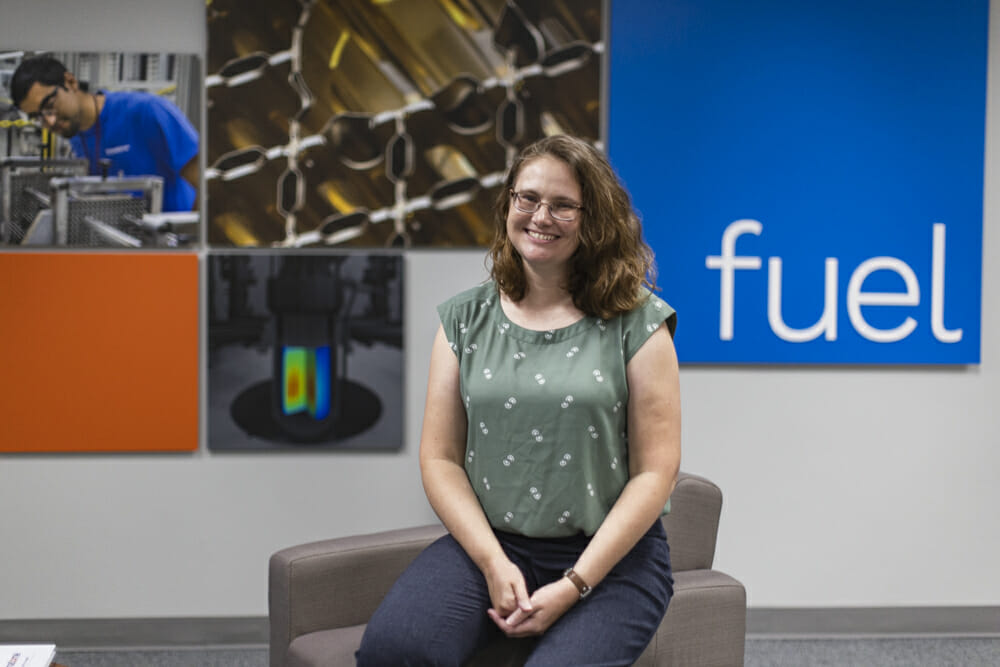
When Stevens came to Framatome as a materials science engineer more than a decade ago, she’d never been exposed to nuclear energy and was struck by the emphasis on safety. “Every meeting we have starts with a safety message. It’s part of our culture,” she says.
With a laser focus on safety, Framatome supports nuclear reactors across the globe to deliver clean, carbon-free energy that is reliable and efficient. Employees work for today’s fleet of reactors and also develop new technologies for smaller reactors, which are the future of zero-carbon energy production.
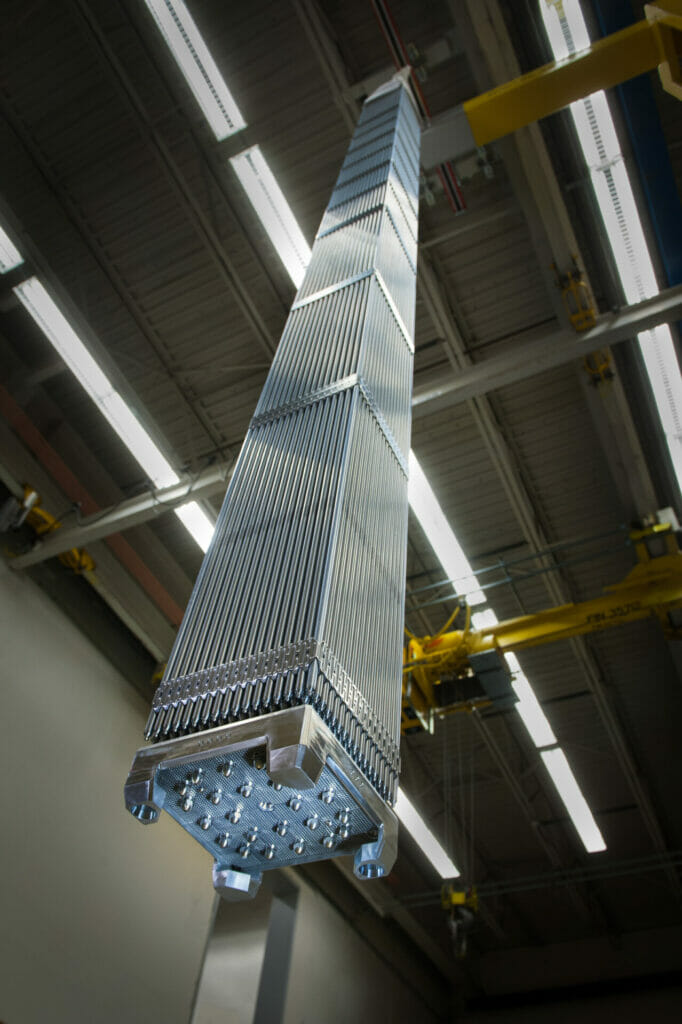
But what is a nuclear reactor, exactly? “It’s a power plant,” Stevens explains. “Think about a coal-fired plant or a wind turbine,” she explains. “They convert the energy of giant rotating fan blades into electricity. A wind turbine uses the wind to turn the blades, while other power plants boil water to produce steam and use the steam to turn giant fan blades. But instead of burning coal or natural gas, we use nuclear as the source of heat energy.”
That’s why nuclear has a much lower impact on the environment. Stevens likes the excitement of her job — and she’s proud of the global value it adds. “It never gets boring. Even if you’re working through a problem you’ve encountered before, there’s guaranteed to be a new twist,” she says. “Like me, most employees at Framatome come to work every day because they believe in nuclear energy.”
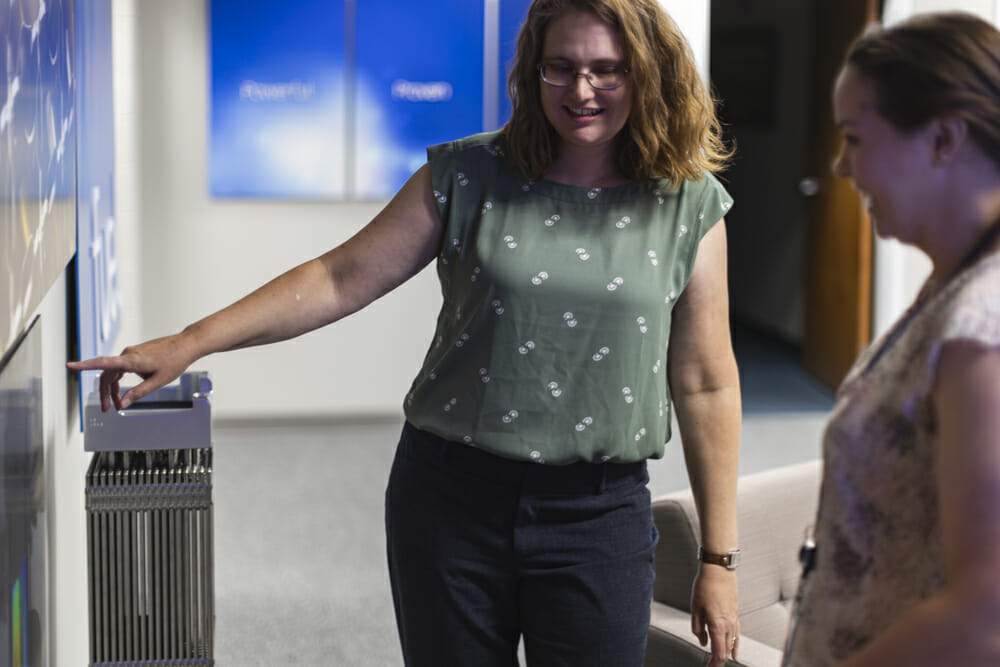
Today, Lynchburg is a nuclear engineering hot spot, with a nuclear workforce at 8 percent above the national average. In addition to Framatome, which focuses on commercial reactors, about 27 firms maintain a highly skilled labor market, including BWX Technologies, which is a leading government supplier of nuclear components and fuel.
That means there are a lot of great jobs in this sector. Even before the pandemic, Stevens was supported in working from home each afternoon so she could meet her children, now 11 and 8, when they got off the bus. “I was able to work from home while they did homework,” she says. “Having that ability to flex when I need to go and be a mom first is never questioned or challenged. And likewise, there are times I need to put Framatome first, and that works too. We all have people who matter to us outside of the office, and it’s wonderful to work for a company that encourages employees to find that balance.”
Living in Lynchburg, balance is easy to come by. “I’ve found it to be an incredible city that doesn’t feel too big to raise a family,” Stevens says. “There’s not a ton of traffic. The cost of living is low. There’s tons to do on the weekends, especially outdoor activities—walking, hiking, playing with our dog—which is what we really enjoy. And if we want to visit a bigger city, that’s easy, too.”
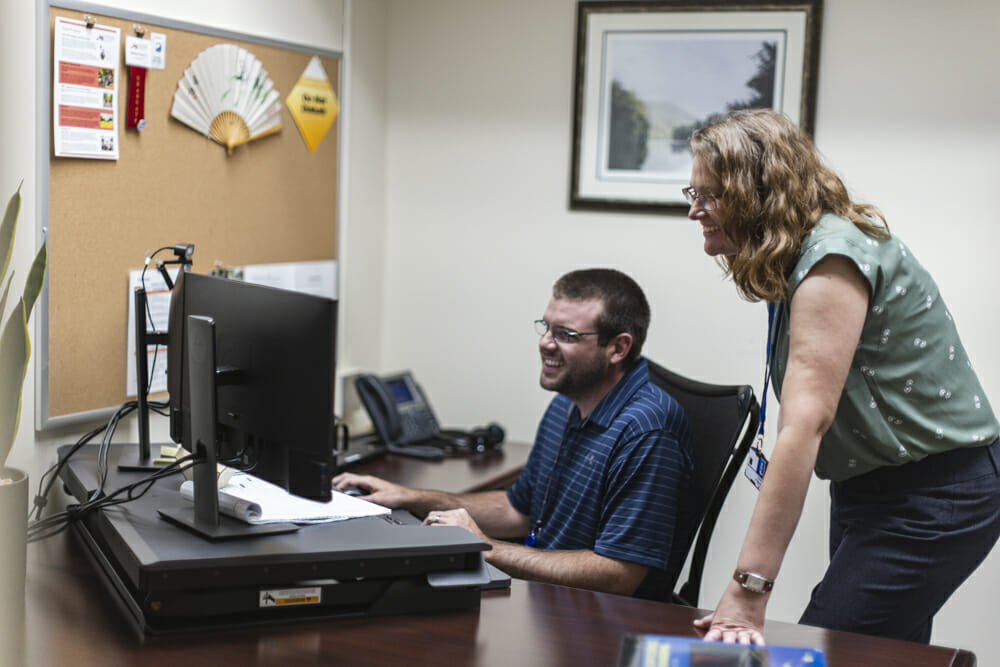
Off the clock, Stevens serves on the advisory council for Leadership Lynchburg. A program offered through the Lynchburg Regional Business Alliance, Leadership Lynchburg combines formal lessons and mentoring with a community project that “leaves a footprint” on the Lynchburg region.
When Stevens took the nine-month course a few years ago, it helped her make connections across the region and develop her leadership strengths. “It’s nice that you can take what you’re learning and apply it in the context of a meaningful project that lets you give back to the community,” she says. “You can practice the skills you’re learning without having to experiment on the job.”
The program builds leaders who feel confident in their values and know how to lead from a place of authenticity. They want to have a positive impact on their organizations and their communities. Recognized across the country as best-in-class, the Leadership Lynchburg program is part of what makes Lynchburg attractive to employees like Stevens: It supports people who are doing what they love.
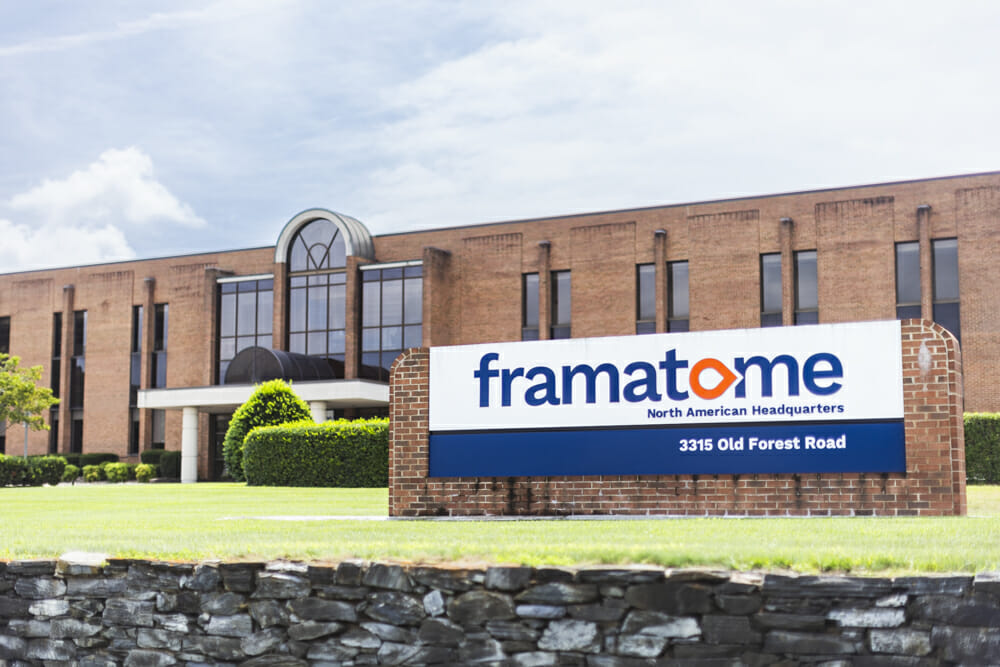
Leadership Lynchburg also gives Stevens an opportunity to be an advocate and mentor for minorities in engineering. Over the course of her education and now career — a bachelor’s from NC State University and a master’s from the University of Virginia, both in materials engineering — Stevens has often been one of the only females in a class or on a corporate team. She believes the industry will not be successful unless it casts a wide net for diverse talent.
To students on the fence about an engineering career, she offers this advice: “Do it! Don’t give up. It can be hard, but it’s absolutely satisfying. The view you bring, the experience you bring, it’s so valued and so needed.”